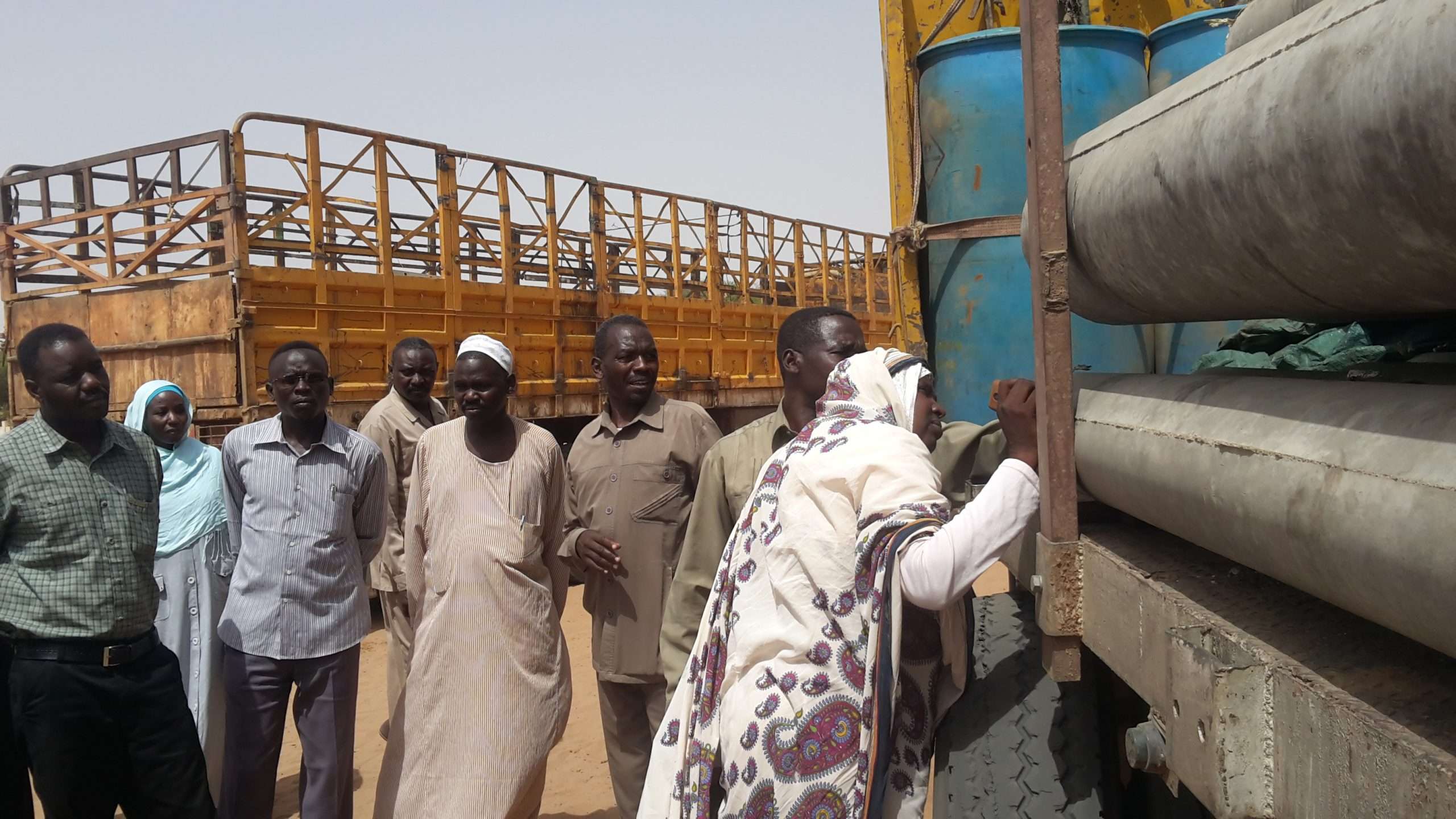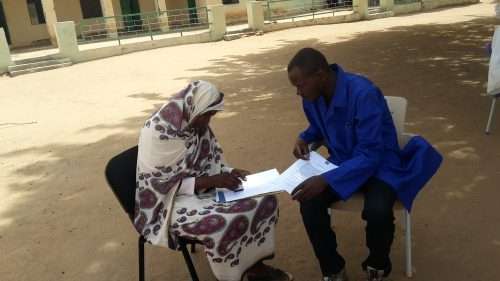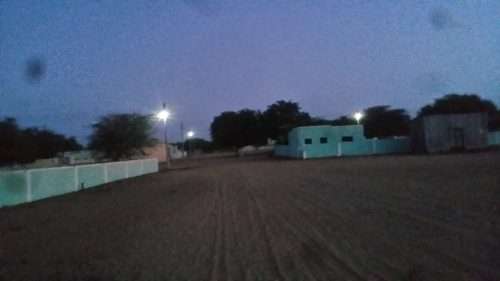
By 2014, the locality of Dar Al-Salaam in North Darfur, Sudan, was trapped in a cycle of violent conflict and economic devastation. The root causes were deeply intertwined with environmental degradation, such as reduced rainfall and deforestation, which exacerbated competition for scarce resources like water and arable land. This competition fueled conflicts between nomadic herders and sedentary farmers, who both relied on the same dwindling natural resources.
However, the situation was not just about resource scarcity. The broader political context was equally critical. Dar Al-Salaam, like much of Darfur, had been marginalized politically and economically by the central Sudanese government for decades. This marginalization intensified ethnic tensions between Arab and non-Arab tribes, all vying for power and survival in a fragile environment. The area’s significance as a key agricultural hub, second only to Kutum in North Darfur in crop production, was diminished as conflict tore through the land and fractured the community of over 65,000 people from 46 different tribes.
The occupation of Dar Al-Salaam by the Sudan Liberation Army (SLA) between 2004 and 2007 worsened the conflict. Following the 2006 Abuja Peace Agreement, the Sudanese government armed pro-government militias, sparking inter-tribal violence. The Zaghawa tribe, one of the major ethnic groups, suffered heavy displacement, with many fleeing to the Abu Zaraga administrative unit in the state, where they found little to no government support. Basic services in Abu Zaraga were non-existent, further isolating the region. Dar Al-Salaam became a symbol of a nation divided by years of war, with shattered communities, abandoned infrastructure, and economic potential left untapped.
In 2014, USAID launched the Toward Enduring Peace in Sudan (TEPS) initiative with a $71.3 million budget, set to run through September 2025. TEPS aimed to support inclusive democracy, build resilience, and promote economic growth. Known for its community-based approach and adaptability, TEPS successfully navigated political challenges, fostering dialogues, promoting tolerance, and addressing conflicts through infrastructure and economic projects.
Through evolving challenges and conflicts in Sudan during the project’s history, the project has pivoted with responsive programming adapting to changing needs. Following Sudan’s 2019 revolution, TEPS shifted to support civil society organizations (CSOs), focusing on civic education, local governance, and institutional reforms. After the 2021 military coup, the program prioritized youth and women’s economic empowerment and launched a trauma program for youth exposed to violence during demonstrations in Khartoum and conflict-affected communities. In response to renewed conflict in 2023, TEPS provided trauma support, aided internally displaced persons (IDPs), and collaborated with emergency response rooms (ERRs) to ensure the continued operation of CSOs and the provision of essential services.
Ms. Aziza Kenian, a community leader in Dar Al-Salaam, from non-Arab tribe of the locality, embodies the transformative impact of TEPS. Before TEPS' intervention, Ms. Aziza, like many others, lived in a region ravaged by conflict, with limited access to essential services and a community divided by distrust. In 2014, she participated in one of TEPS' workshops on conflict resolution and leadership, held at the Center for Peace and Development Studies and Human Rights at the University of El Fasher. This workshop, supported by TEPS, was instrumental in providing her with the skills needed to mediate local conflicts and foster peace within her community.

As a result of the efforts by Ms. Aziza and her colleagues in the Community-led Peace Council, the Abu Zeraga community leaders met with their commissioner for the first time since 2004. This groundbreaking meeting helped break the ice between various components of the locality and created a platform for dialogue among rival groups in both Abu Zeraga and Dar Al-Salaam. One immediate outcome of this initiative was that Abu Zeraga representatives assisted other rival communities within Dar Al-Salaam locality in safely travelling to El Fasher, the capital of Darfur, through their area. Additionally, they agreed to return a stolen car to Dar Al-Salaam, further fostering trust and cooperation between the communities.
Additionally, another major responsibility given to Ms. Aziza as result of her remarkable peacebuilding effort was managing a TEPS-funded electricity restoration project, which brought power back to critical institutions including schools, hospitals, markets, and government offices in Dar Al-Salam. To this day, despite that ongoing conflict, Dar Al-Salam remains the only locality with access to electricity. Her management of the electricity station has ensured a reliable energy supply for Dar Al-Salaam, which has revitalized the local economy. Businesses such as mobile phone charging stations and welding shops now thrive, providing new sources of income for families. In addition to the electricity project, TEPS funded a water project in Dar Al-Salaam, addressing one of the community’s most pressing needs: access to safe drinking water.

Reflecting on her journey, Ms. Aziza said, "TEPS gave us the tools to rebuild, not just our infrastructure but also our community’s spirit. With electricity and clean water, we are healthier and more hopeful. This is what peace looks like."
Ms. Aziza’s story is one of many that demonstrates how USAID-funded TEPS has empowered individuals and communities across Sudan. TEPS has provided training to local leaders, women, and youth, enabling them to take active roles in peacebuilding and conflict resolution. Through the support provided to peace centers, like those attended by Ms. Aziza, have helped local leaders mediate disputes, encourage dialogue, and rebuild trust in their communities. TEPS’ efforts have ensured that local actors are at the forefront of peacebuilding initiatives, creating sustainable solutions rooted in community participation.
Over the past decade, USAID's TEPS program has significantly contributed to peace, development, and empowerment across Sudan. By establishing 12 peace centers and connecting local administrations with community organizations, TEPS facilitated critical peacebuilding efforts, including in the ongoing conflict between the Sudanese Armed Forces (SAF) and Rapid Support Forces (RSF) that started in April 2023.
Since 2019, TEPS has trained over 650 facilitators, reaching more than 31,000 individuals through civic education. Eight civic networks were established to promote democratic values, targeting women, youth, nomadic communities, and more. TEPS’s trauma initiatives built three trauma centers, supported over 5,400 individuals, and created five trauma networks to ensure ongoing community support. The program empowered youth through 24 youth centers and 10 civic labs, fostering political engagement and peace promotion. Additionally, 10,083women benefited from vocational training and business support, with cooperatives established to boost local economies.
TEPS has also enhanced essential services, including water systems that served over 295,312 people and the rehabilitation of schools and hospitals. In media, the program trained journalists and produced 50 TV and radio episodes promoting peace.
TEPS also focused on economic empowerment, providing marketable skills and vocational training to women and youth, while establishing emergency response rooms to strengthen communities’ crisis management. By including people with disabilities through training and advocacy, TEPS ensured their active participation in Sudan’s transition. Looking ahead, TEPS is transitioning ownership of its projects to local communities and government entities, ensuring sustained peace and development across Sudan.
As Sudan continues to navigate the complexities of ongoing conflict, economic instability, and humanitarian crises, TEPS remains committed to adapting its strategies to meet these evolving challenges. The program’s priorities reflect USAID’s overarching goals in Sudan: fostering long-term stability, building resilience, and supporting Sudanese aspirations for a peaceful, democratic, and prosperous future.
TEPS aims to expand its focus on humanitarian assistance, particularly in regions most affected by conflict, such as Darfur, Blue Nile, and Kordofan. Through partnerships with local organizations and communities, TEPS aims to enhance community resilience by improving access to essential services. Additionally, as part of USAID's broader strategy, TEPS will continue to empower women and youth, ensuring their active participation in peacebuilding and governance.
Furthermore, TEPS will reinforce efforts to strengthen governance and accountability structures at local level, aligning with the commitment to helping Sudan transition toward a more inclusive, transparent, and democratic society. By supporting local leadership, enhancing civic engagement, and promoting economic recovery, TEPS seeks to create the foundations for a peaceful and resilient Sudan that can thrive beyond the current crisis.